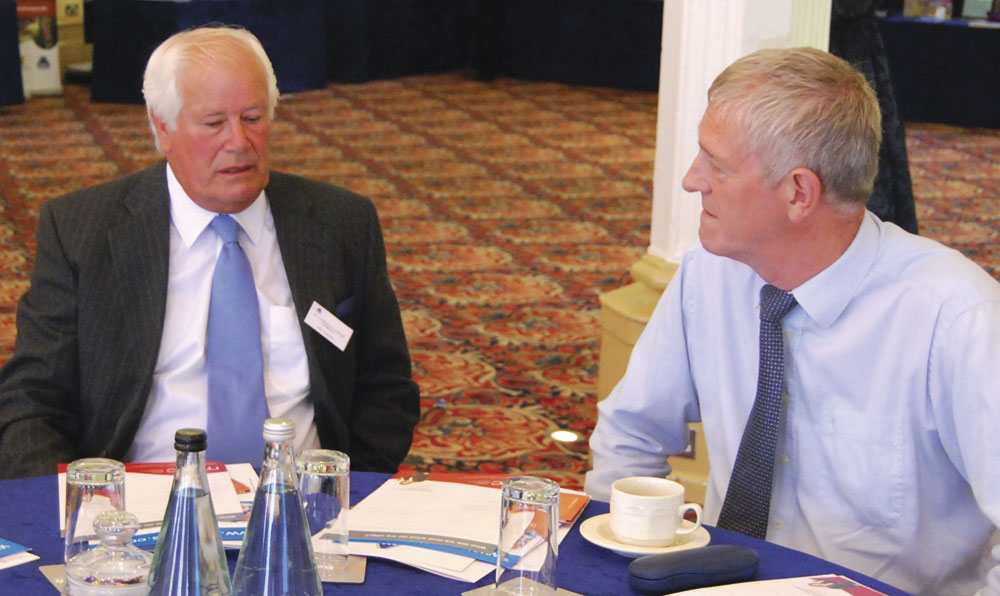Small Is Beautiful

Smaller quarry firms performing well despite downturn, BAA conference hears
Independent UK quarry firms are holding up well despite the economic downturn, according to new research for the British Aggregates Association (BAA) annual general meeting at The Palace Hotel in Buxton, Derbyshire.
One of 12 high-profile speakers presenting to a packed crowd at this year’s independent quarry trade association AGM, BDS Marketing’s Julian Clapp, said that while demand had receded over the past two years, smaller firms were holding up the best.
‘In a random sample of BAA members we researched, we found an average operating profit of 7.5% in 2009. This is only around 8% down on the previous year. Very good in the current climate and much higher than is being achieved by the big five firms,’ he said.
And there was further good news for attendees. Mr Clapp continued by saying that by 2015, he sees sand and gravel demand growing by 15%, crushed rock by 5% and ready-mixed concrete by 20%. However, a cutback in public spending would see asphalt drop by 30%, compared with current demand.
Despite the growth, the figures are still 20–30% down on 2007, he said. And the environment in which quarry firms have been operating, and will continue to operate, was highlighted in detail by Michael Ankers, chief executive of the Construction Products Association (CPA).
Between 2008 and 2009 the construction products sector suffered its most dramatic fall in output since 1974, he said. Over 100,000 jobs have been lost since 2008, and by 2015, construction will represent just 1.25% of GDP; three years ago it was 3.6%.
‘It is a hard time with all work down by 14% since 2008. Housing is down by 30%, commercial by 38% and industrial by 42%. However, the impact could have been worse. The fiscal stimulus helped and public non-housing projects are up by 60%,’ he said.
Mr Ankers said he agreed with the coalition Government’s ‘early and decisive action’ on cutting spending. And he believes the Government’s emphasis on rebalancing the economy away from finance will help quarry operators.
However, he said evidence was key if firms are to gain the permissions to excavate. ‘There will be no special pleading. You will need to deliver proof that infrastructure is poor or more housing is needed. The CPA needs input. Get it to us and we can go to government,’ he said.
While there would be no ‘...dramatic bounce back for construction’ and public sector work would increasingly tail off, like Julian Clapp, Mr Ankers sees a future of growth.
‘In five years’ time we see housing up by 12%, infrastructure by 42%, and industrial demand by 35%. Overall, by this time we see all work up by 3% on current figures, helping to feed demand,’ he said.
And there was plenty more business-useful advice for firms throughout the day. Graham Crawshaw, standards and development manager at the Mineral Products Qualifications Council (MPQC), brought people up to speed on how NVQs were being phased out, while Proskills’ Jonathan Ledger talked training funding.
‘We are the sector skills council for the process and manufacturing sector and I tell you there is money out there for training your staff,’ he said. ‘However, the way of the future is in apprentices. That is where the money is going.
‘Most of your workers are at the upper age limit. Be warned. Fully funded +25-years funding will disappear in September. Contributory funding will remain, so you need to start proving that funding will make a difference to your company if you want to secure it.’
Offering further weight to the occasion was the presence of two generations of HSE Senior Inspector of Quarries. First up was now retired Eric Darlow, author of two editions of the Institute of Quarrying’s Health and Safety Law in Quarries handbook. He reminded BAA members that a downturn did not mean health and safety could be overlooked.
He said: ‘There are a lot of ambulance-chasing lawyers out there, and there is no need to help them in their business when ensuring compliance through the BAA scheme costs the same as a couple of dumptruck tyres.’
Following his wise words was Roy Bush, the current Senior Inspector of Quarries. ‘The quarry speaks to you all the time,’ he said, ‘and the noises you hear are problems with the face, each a potential incident.’ His message was simple. After a blast the rock face remaining is weakened. Food for thought to close off an engaging day of high-profile speakers.
